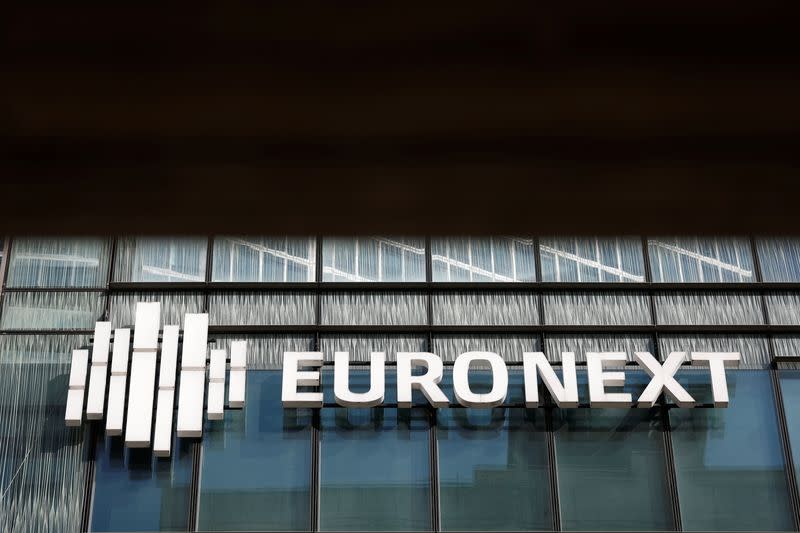French bonds and bank stocks rocked by political turmoil

By Amanda Cooper and Harry Robertson
LONDON (Reuters) -French markets endured another brutal sell-off on Friday as political uncertainty unleashed the biggest weekly jump in the premium investors demand to hold French government debt since 2011 and bank stocks tumbled.
France's Finance Minister Bruno Le Maire warned the euro zone's second-biggest economy faced the risk of a financial crisis if the far right were to win parliamentary elections in the coming weeks.
Marine Le Pen's eurosceptic National Rally (RN), is leading in opinion polls following President Emmanuel Macron's surprise decision at the weekend to call a snap election.
Le Pen's party is calling for a lowering of the retirement age, cuts in energy prices, increased public spending and a protectionist "France first" economic policy approach.
French banks were hit hard. The country's biggest three - BNP Paribas, Credit Agricole and Societe Generale - have lost between 12-16% in value this week, the most since the banking crisis of March 2023.
The premium investors demand to hold French government bonds over euro zone benchmark Germany meanwhile rose to its highest level since 2017 at nearly 80 basis points.
It was set for a rise of roughly 25 bps this week, the biggest weekly increase since 2011, when the euro zone was the throes of a sovereign debt crisis that led to multiple government and bank bailouts worth trillions of dollars.
"It's really hard to ignore the parallels from the situation of 2011-2012 in the sovereign debt crisis," Justin Onuekwusi, chief investment officer at investment firm St. James's Place, said.
"If you go back to that period, very similar themes -- elections, sovereign debt spreads, debt sustainability in focus with no real sign of what's going to stop this momentum."
Stock-market volatility roared higher on Friday, rising by the most in a day since last July. Reflecting the level of nervousness, the cost of insuring the debt of BNP Paribas, Societe Generale and Credit Agricole rose to its highest since the start of the year, according to S&P Global Market Intelligence.
Shares in Italian banks also took a dive, with UniCredit down 4.7% and Intesa Sanpaolo down 3.6%, as investors ditched the bigger euro zone banks, including Germany's Commerzbank, down 5.5%.
French state-backed finance body SFIL postponed a bond sale on Friday, a lead manager memo seen by Reuters, in a sign of how market unease was rippling out.
The CAC 40 was last down over 2%, heading for a weekly loss of nearly 6%, its largest since early 2022, and underperforming the regional STOXX 600 index, down just 1.8% for the week.
A decision by France's left wing parties to form a 'Popular Front' added to selling pressure as it dents Macron's chances emerging victorious in the election, analysts said.
The euro touched a one-month low at around $1.0690 and was last down 0.5%.
The possibility that the RN could win has compounded investor concerns around France's fiscal discipline. The first round of voting takes place on June 30.
France's debt to gross domestic product ratio is above 100%, and its deficit is around 5%. Its credit rating was downgraded last month by S&P Global.
It now costs the French government more to borrow money for 10 years than it does the Portuguese government for the first time since at least 2005, according to LSEG Datastream.
There is now also less than half a percentage point of difference in the long-term borrowing costs of the French government and those of Greece, the biggest casualty of the euro zone debt crisis of 2011-2012. A year ago, that number was closer to 80 basis points.
"In terms of positioning, fast money accounts have been short France over the last few months. However, real money accounts, institutional accounts and Asian real money are long France," said Jefferies analyst Mohit Kumar.
"As these accounts seek to exit their positions or reduce exposure, buyers are unlikely to step in given that elections are just three weeks away."
(Additional reporting by Tassilo Hummel in Paris and Dhara Ranasinghe and Harry Robertson in London; Editing by Dhara Ranasinghe and Christina Fincher)

 Yahoo Finance
Yahoo Finance 